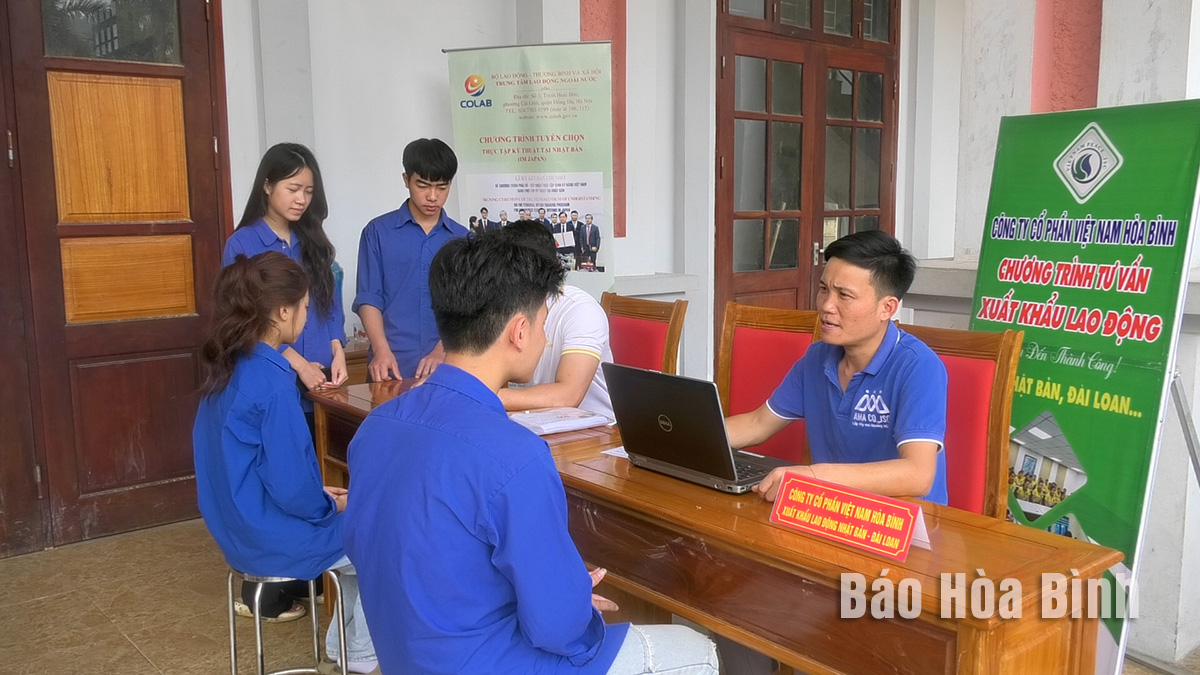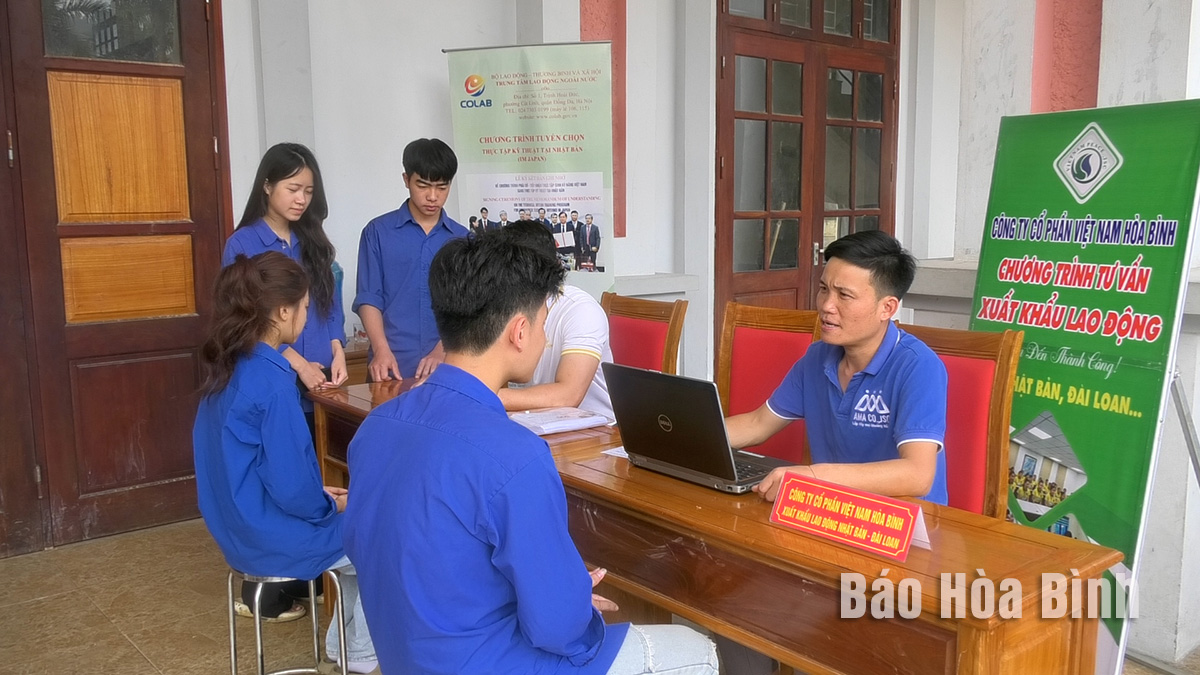
Da Bac district, like many other localities, faces challenges such as unemployment and unstable job opportunities, with an average 900 labourers needing vocational training annually and nearly 1,000 looking for jobs. The district has collaborated with the provincial Department of Labor, Invalids, and Social Affairs, job service centres, and domestic and international recruitment agencies to organise job fairs and consultation sessions every year.

Local youngsters inquire into overseas employment and educational opportunities in China’s Taiwan and Japan at a job fair.
In 2024, the district hosted three job fairs in Tan Minh, Vay
Nua and Doan Ket communes, as well as several career counseling workshops.
Through these efforts, 1,125 local labourers found jobs, mostly in industry-construction,
trade-service, and agri-forestry.
Additionally, 90 workers secured contracts for overseas
employment, with destinations including China's Taiwan and Japan.
Vu Hai Yen, recruitment director at TRAENCO International,
highlighted the high interest in overseas employment among local residents, but
they lack a clear understanding of such opportunities. By providing detailed
information at job fairs, the company has supported workers in accessing
financing and state support to get overseas employment.
Labour export has proven to be an effective tool for job
creation in the locality, offering labourers stable income and fostering
economic growth. Authorities have emphasised the importance of selecting
reputable companies to ensure workers receive proper benefits and avoid risks.
In the coming time, the district plans to strengthen its labour
export initiatives by updating information on recruitment opportunities, and
enhancing vocational training programmes.
A pilot project to recruit labourers for seasonal work in the Republic of Korea
is being carried out in several communes.
The district aims to expand this programme, helping more
residents access international job markets, improve livelihoods, and achieve
sustainable poverty alleviation.
The emulation movement "Hoa Binh joining hands to build new-style rural areas” has been widely spreading, becoming a driving force that motivates the localities to renew rural landscapes and improve the material and spiritual lives of the residents. In this movement, the people play a central role-both as the main implementers and direct beneficiaries of its outcomes.
In response to the global digital revolution, Hoa Binh Newspaper is transforming itself into a modern and multi-platform media hub, blending cutting-edge technology with a restructured newsroom and a new generation of tech-savvy journalists.
Hoa Binh province’s Association of the Elderly recently held a conference to review the project on expanding the inter-generation self-help club model until 2025.
In a move to implement Resolution No. 57-NQ/TW, issued on December 22, 2024 by the Politburo, which targets breakthroughs in science-technology development, innovation, and digital transformation, the Hoa Binh provincial Department of Health has issued a plan to roll out the "Digital Literacy for All” campaign within the local health sector.
An Nghia Commune (Lạc Sơn District) is one of the communes that achieved the tha standard of the national new rural area in 2018. Entering a new development phase, the commune is now trying to meet the criteria for the advanced new rural development. With the strong political will and the public consensus, the commune is gradually overcoming the challenges to reach this goal, aiming for the sustainable development.



